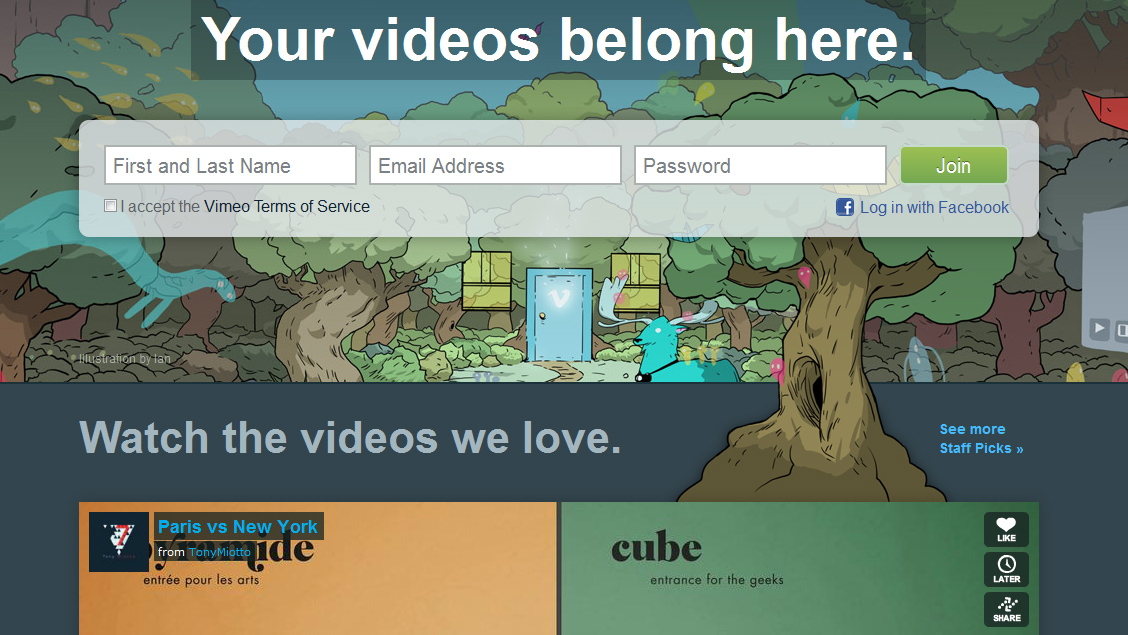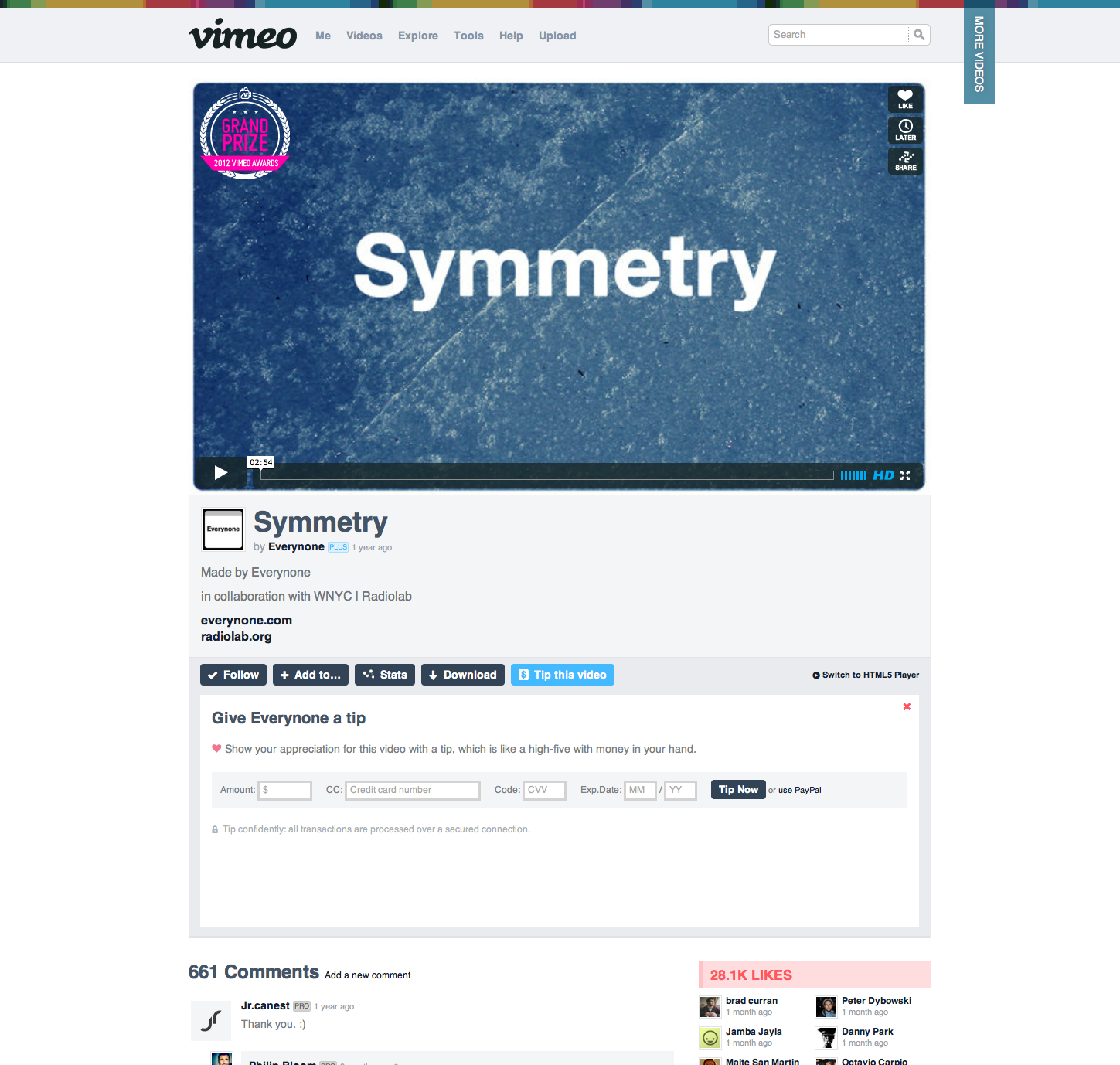Vimeo: Kickstarter has shown how generous people can be
Video site talks to TechRadar about helping filmmakers make money

Vimeo has launched a new scheme on its site that allows users to give something back to the filmmakers that upload content.
Making money from video on the web is nothing new. YouTube has a variety of schemes on offer – from revenue sharing to partnership opportunities – but when it comes to video watchers directly offering money to budding filmmakers, the majority of sites have been reticent to go down this path.
Vimeo reckons it has found the right way to tackle this and has unveiled a two-part scheme that will, hopefully, make contributors money – a tip jar scheme and a pay per view service.
"What we have learned from some of the existing Crowdfunding services out there is that people want a direct connection with creators and they are willing to support a good idea," said Jordan McGarry, senior curator at Vimeo, to TechRadar.
"We have launched Tip Jar because we believe that sentiment applies to completed work as well. With Vimeo's Tip Jar, the viewer knows exactly what they are supporting because they have already viewed the work."
Unlike YouTube, Vimeo has never gone down the pre-roll advertising route on its site, something that the filmmaking industry has embraced, but it is wary that the site needs to make money as well as the filmmakers.

When it comes to revenue splitting, Vimeo will take 15 per cent share of the Tip Jar initiative and 85 per cent of the gross revenue will go to the filmmaker. When it comes to pay per view options, the finer details haven't been sorted on this but Vimeo firmly believes that its users will be willing to part with cash.
Sign up for breaking news, reviews, opinion, top tech deals, and more.
"We think people will be keen to reward great work. Our audience is extremely passionate and supportive of each other and in general people increasingly understand that it is fair to pay for good quality content, especially when the money is going directly to the creator behind the work," noted McGarry.
"In fact, we have seen just how generous people can be in crowd funding an idea with services like Kickstarter. We believe that sentiment will carry over – if not increase – when applied to finished work."
Pay per view
When it comes to pay per view, Vimeo was keen to point out that this won't mean content that is already available going behind a wall but a way for filmmakers to show off new content and get paid for it.
"We think people will always want to put some of their work up for free – it's the only way to allow people to get to know you and your work so that you can build an audience who will then be interested in paying to see those films you decide to charge for," said McGarry.

"Currently there are a lot of films that directors make that aren't available online because directors don't want to just give them away.
"Tip Jar and Pay-to-View is more about providing a space for those films and enabling directors to let those films find a paying audience, off the back of a successful festival run, for example."
Stop the cuts
With arts funding in the UK cut significantly and cinemas looking to cram in profitable 3D-friendly blockbusters rather than homegrown indies, Vimeo is hoping its new schemes will mean that online can be a thriving marketplace for creative moviemaking.
"The arts world has suffered a lot of cuts in recent years and a lot of film funding bodies have been hit hard.
"It is great to see more brands stepping up to do more interesting work in this space – the shortlists for the Vimeo Festival and Awards this year were full of great brand-funded work but there is always room for more money.
"We are launching these tools to encourage this exciting wave of funding coming direct from the audience - we love the impact Kickstarter and indiegogo are having and we are also very excited to see what happens when creators have a way of selling their finished films to their audience direct, regardless of who they are or who they know."

Marc Chacksfield is the Editor In Chief, Shortlist.com at DC Thomson. He started out life as a movie writer for numerous (now defunct) magazines and soon found himself online - editing a gaggle of gadget sites, including TechRadar, Digital Camera World and Tom's Guide UK. At Shortlist you'll find him mostly writing about movies and tech, so no change there then.